How Sustainable Are the World’s Top Solar Companies?
The solar industry stands at the forefront of the global clean energy revolution. But beyond generating renewable power, how well do these companies integrate Environmental, Social, and Governance (ESG) principles into their operations?
Our latest whitepaper unveils exclusive insights into the ESG and business sustainability performance of 25 leading solar companies worldwide. Backed by in-depth research, sustainability ratings, and industry benchmarks.
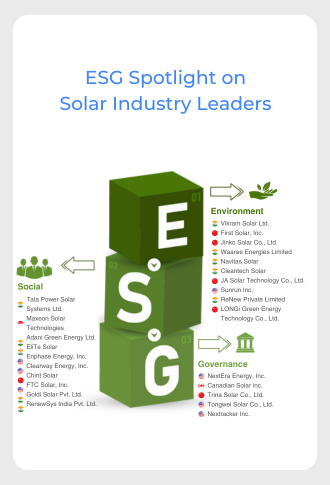
The Solar Industry’s Role in Combating Climate Change and Driving the Transition to a Low-Carbon Economy
As the world grapples with the impacts of climate change, the solar industry is playing a crucial role in reducing carbon emissions and accelerating the transition to a cleaner energy future. Solar energy production significantly cuts reliance on fossil fuels, directly contributing to lower greenhouse gas (GHG) emissions and helping countries meet their climate targets under the Paris Agreement. Beyond energy generation, solar manufacturers are innovating with sustainable materials, recycling programs, and low-impact production processes to minimize their overall carbon footprint. The shift towards a low-carbon economy also involves creating resilient supply chains, reducing resource consumption, and adopting circular economy principles. By championing sustainability both in operations and through their products, solar companies are setting a precedent for responsible energy production worldwide.
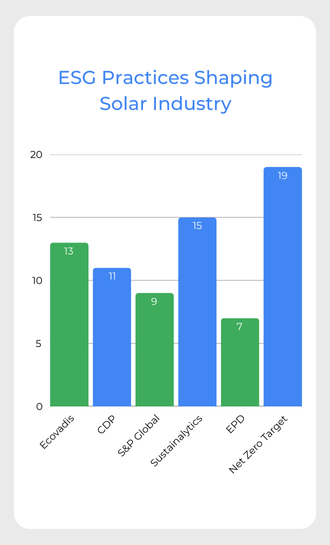
ESG Performance Evaluations of Top Solar Manufacturers Using EcoVadis, CDP, and Sustainalytics Frameworks
Investors, regulators, and consumers are increasingly scrutinizing solar companies’ sustainability efforts, making ESG performance evaluation a critical factor in business success. Leading assessment frameworks such as EcoVadis, CDP (Carbon Disclosure Project), and Sustainalytics provide transparency into how solar manufacturers manage environmental impact, corporate governance, and social responsibility. EcoVadis evaluates suppliers on sustainability risk and ethical sourcing, CDP assesses climate-related disclosures and carbon reduction commitments, while Sustainalytics measures ESG risk exposure and corporate governance effectiveness. Companies scoring high on these benchmarks are more likely to secure investor confidence, gain regulatory approvals, and attract eco-conscious consumers. This whitepaper analyzes these frameworks to help industry professionals understand how top solar companies are aligning with global sustainability expectations.
ESG Performance Evaluations of Top Solar Manufacturers Using EcoVadis, CDP, and Sustainalytics Frameworks
Investors, regulators, and consumers are increasingly scrutinizing solar companies’ sustainability efforts, making ESG performance evaluation a critical factor in business success. Leading assessment frameworks such as EcoVadis, CDP (Carbon Disclosure Project), and Sustainalytics provide transparency into how solar manufacturers manage environmental impact, corporate governance, and social responsibility. EcoVadis evaluates suppliers on sustainability risk and ethical sourcing, CDP assesses climate-related disclosures and carbon reduction commitments, while Sustainalytics measures ESG risk exposure and corporate governance effectiveness. Companies scoring high on these benchmarks are more likely to secure investor confidence, gain regulatory approvals, and attract eco-conscious consumers. This whitepaper analyzes these frameworks to help industry professionals understand how top solar companies are aligning with global sustainability expectations.

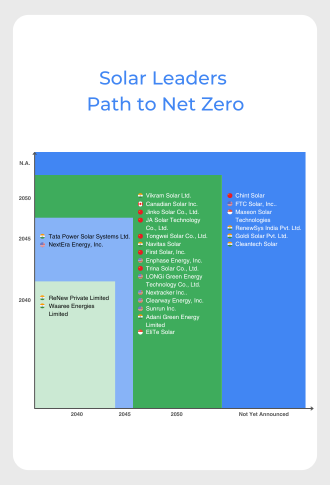
Best-in-Class Sustainability Practices in Achieving Net-Zero Goals
Achieving Net-Zero emissions is no longer just an aspiration but a business imperative for solar companies aiming to be sustainability leaders. Industry frontrunners are adopting closed-loop manufacturing, where materials such as silicon, glass, and metals from end-of-life solar panels are recycled and reused. Renewable energy integration within production, supply chain decarbonization, and carbon offset initiatives are key strategies to minimize emissions. Many companies are setting ambitious Net-Zero targets and aligning their decarbonization efforts with the Science Based Targets initiative (SBTi) to ensure they contribute to global climate goals. In addition, continuous innovation in energy efficiency and green technology is helping firms achieve lower operational emissions. By implementing these practices, solar manufacturers are not just reducing their environmental footprint but also gaining a competitive edge in the rapidly evolving green energy market.
Fill in the form below and Get
Exclusive Whitepaper: ESG and Sustainability Performance of 25 Global Solar Leaders for FREE
Emerging Trends & Challenges Shaping the Future of Sustainability in the Solar Sector
While the solar industry is positioned as a leader in the renewable energy revolution, it faces a complex landscape of emerging trends and challenges that will define its sustainability trajectory. One major trend is the increasing integration of AI and blockchain for enhancing efficiency and transparency in sustainability efforts. ESGtech.ai, an AI-powered tool, is transforming how companies monitor and manage their GHG emissions by providing real-time, automated insights that drive decarbonization strategies. On the challenges front, the industry must ensure comprehensive ESG adoption, including the use of AI to monitor environmental impact and social governance. Another pressing issue is ensuring compliance with evolving ESG standards through advanced technologies. This whitepaper provides a deep dive into these dynamics, helping stakeholders anticipate risks and leverage opportunities for sustainable growth. By leveraging AI tools like ESGtech.ai, companies can easily track GHG emissions.
Emerging Trends & Challenges Shaping the Future of Sustainability in the Solar Sector
While the solar industry is positioned as a leader in the renewable energy revolution, it faces a complex landscape of emerging trends and challenges that will define its sustainability trajectory. One major trend is the increasing integration of AI and blockchain for enhancing efficiency and transparency in sustainability efforts. ESGtech.ai, an AI-powered tool, is transforming how companies monitor and manage their GHG emissions by providing real-time, automated insights that drive decarbonization strategies. On the challenges front, the industry must ensure comprehensive ESG adoption, including the use of AI to monitor environmental impact and social governance. Another pressing issue is ensuring compliance with evolving ESG standards through advanced technologies. This whitepaper provides a deep dive into these dynamics, helping stakeholders anticipate risks and leverage opportunities for sustainable growth. By leveraging AI tools like ESGtech.ai, companies can easily track GHG emissions.
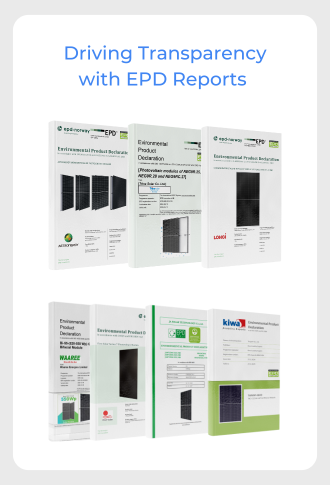
Pioneering Sustainability Practices: How LCA and EPD Are Shaping the Future of Solar Manufacturing
Solar companies leading the sustainability revolution are leveraging Life Cycle Assessments (LCA) to gain a comprehensive view of their environmental impacts across every stage of production, from raw material extraction to end-of-life disposal. By identifying hotspots and optimizing processes, LCAs help manufacturers reduce their overall carbon footprint. To further solidify their commitment to transparency and environmental responsibility, industry leaders are publishing Environmental Product Declarations (EPD), providing third-party verified data on the environmental performance of their products. EPDs allow customers and stakeholders to make informed choices while enhancing the company’s credibility in the market. Together, LCA and EPD not only drive emissions reductions but also elevate the brand as a trusted sustainability leader in the solar industry.

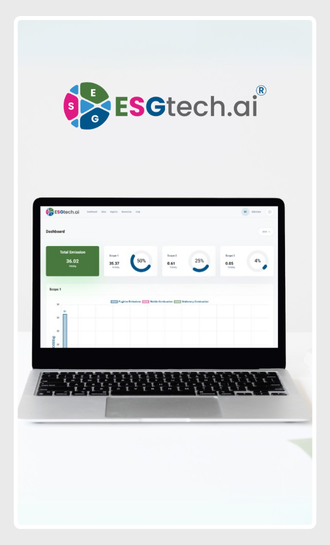
Recent Comments